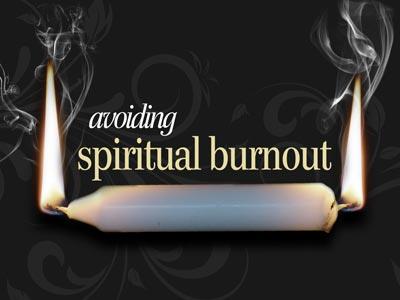-
Elijah & Obadiah Series
Contributed by Robert Leroe on Nov 28, 2017 (message contributor)
Summary: Obadiah was a good man in a bad place, risking all to protect God's prophets...his concerns resonate with anyone with a stressful job, and show us the path to encouragement and reassurance.
It would be easy to skip over this passage as merely a transition, leading to the exciting confrontation that follows on Mount Carmel. Yet this brief episode in the life of Elijah is for anyone who feels discouraged and defeated.
Following three years of drought, three years of decisively discrediting Baal-worship, Elijah is told by God to confront King Ahab and propose a conclusive contest to see who is the real deity. Elijah leaves Zarephath and returns to Israel. He sees Obadiah (not the prophet), and this is no chance encounter. Obadiah’s position is that of an administrator or chief of staff. He was likely present when Elijah initially confronted the king 3½ years earlier. We see here a marked contrast: Ahab, concerned only for the economy, wants to save mules and horses (vs. 5), while Obadiah is saving prophets, risking his life for them. Ahab knew they were sympathetic to Elijah; Jezebel wanted them dead. Despite the chastening famine, Ahab has not changed his ways.
Obadiah has been living in two worlds: serving the king, and also protecting the prophets the queen wishes dead. He was a good man in a bad place. He may have been diverting supplies to keep these hidden prophets fed. His risky balancing act has given him many sleepless nights, wondering if he’d be found out by those loyal to the king. He tells Elijah that he has been following God since his youth (vs 12), and time has not changed him.
Obadiah isn’t sure how much longer he can continue living this stressful double life. Elijah reassures him that he won’t disappear again, leaving Obadiah to tell Ahab the bad news. Just sending him to announce Elijah’s return was dangerous. Obadiah is put in the position of telling Ahab that he’s just seen the king’s number-one enemy, who wants to see him. Let’s hope the king doesn’t “shoot the messenger”! Jezebel was killing the true prophets of Israel, and the rest were hidden in two caves. Should Elijah not make the meeting, Obadiah will be the one to answer. I don’t think we ought to criticize Obadiah for being cautious, or for his needing some reassurance.
I can’t think of a worse boss than Ahab, but I know what it is like to serve under a tyrant. I’ve had a few commanders who were unreasonable and volatile. I know what it’s like to get chewed-out. I sympathize with people who have toxic bosses because I’ve been there. Being the chaplain didn’t insulate me from being yelled at. It is important to know what your boss wants and then do all you can to make it happen. It is important to know how your boss wants information, even if it isn’t your preferred style of communication. For example, I had a commander who wanted information summarized on 3x5 cards; another who wanted a 60-second phone call once a week; yet another who demanded a full-blown PowerPoint briefing. I had to learn to accommodate my bosses and their styles of leadership.
There are times, however, when we have to take a stand for our beliefs. When asked to do something unethical, we may need to speak truth to power, and take the consequences. But first we can appeal to authority, ask that the directive be put in writing, suggest alternative courses of action, go up the chain-of-command, and try to delay action, hoping that with time the boss will have a change of heart. Most importantly, we should pray that God will intervene. The book of Proverbs says that “The heart of the king is in the hand of the Lord.” This means that God can effect change. During the crisis in Bosnia, I received orders to deploy to Hungary as the senior, USAREUR-Forward Chaplain, which conveniently took me away from a toxic Brigade commander; and when I returned to Germany, I found out that he had abruptly retired. This was not an accident. Our sovereign God was working behind the scenes, causing His will to be done.
There may be times when we may have to suffer for our beliefs. We might get fired or passed over for promotion, or receive a letter of reprimand in our official file. We can lodge a formal complaint but we should consider the negative ramifications of a successful complaint. Let’s not fall on our swords over everything; we need to pick our battles. We shouldn’t try to be martyrs, but if we become one, we do so knowing that God is with us.
Consider the plight of 33-year old American Pastor Saeed Abedini, who has been imprisoned in Iran’s notorious Evin prison for over a year--for preaching Christ. Last month an Iranian court rejected his appeal and refused to reduce his 8-year prison term, which his supporters believe is tantamount to a death sentence, due to prison conditions. Pastor Saeed remains bold in prison, despite being beaten and tortured and pressured to deny his faith. He has led over 30 Muslims to Christ while in prison. His wife Naghmeh travelled to the United Nations last week and was able to hand-deliver a letter to the delegation of Iran’s new president, asking for her husband’s quick release. According to a recent study, more Christians are being persecuted than any other group today, particularly in Asia, Africa, and the Middle East. They need our prayer support. Some, like Pastor Saeed, may also need letters sent to Congress.

 Sermon Central
Sermon Central



